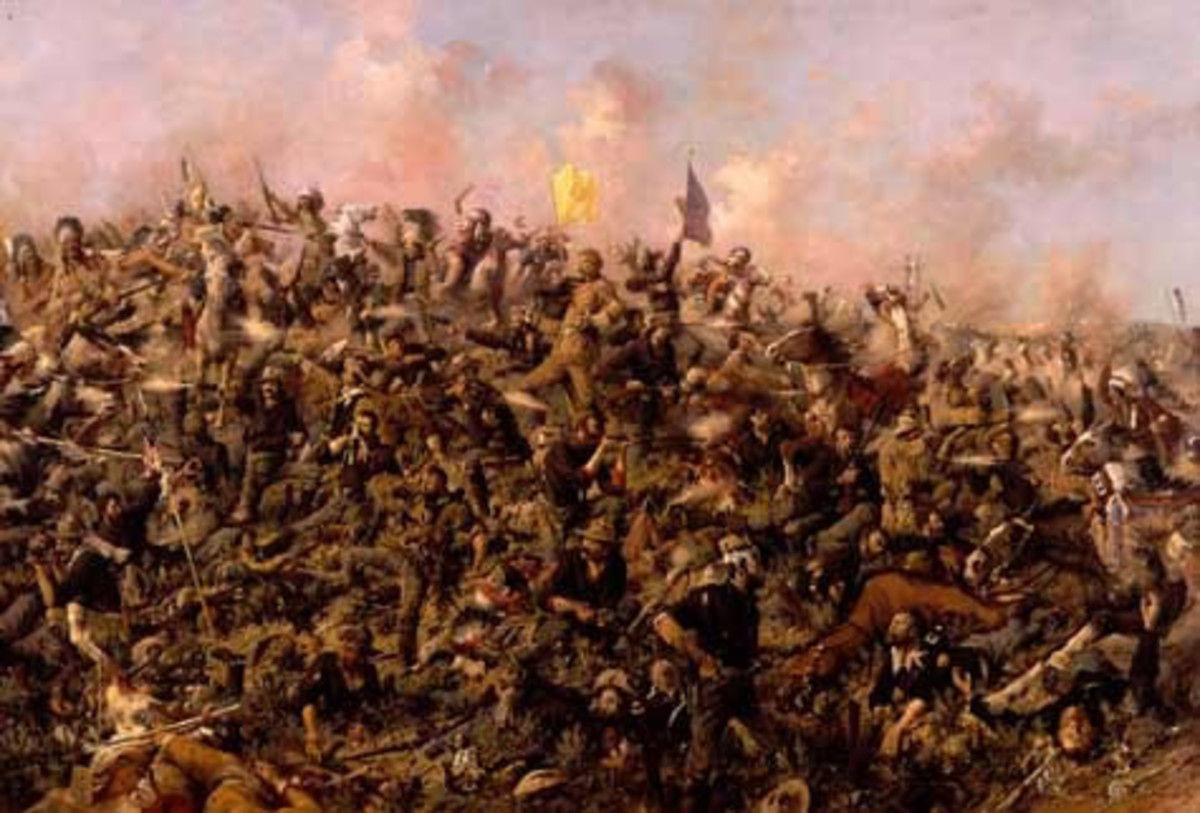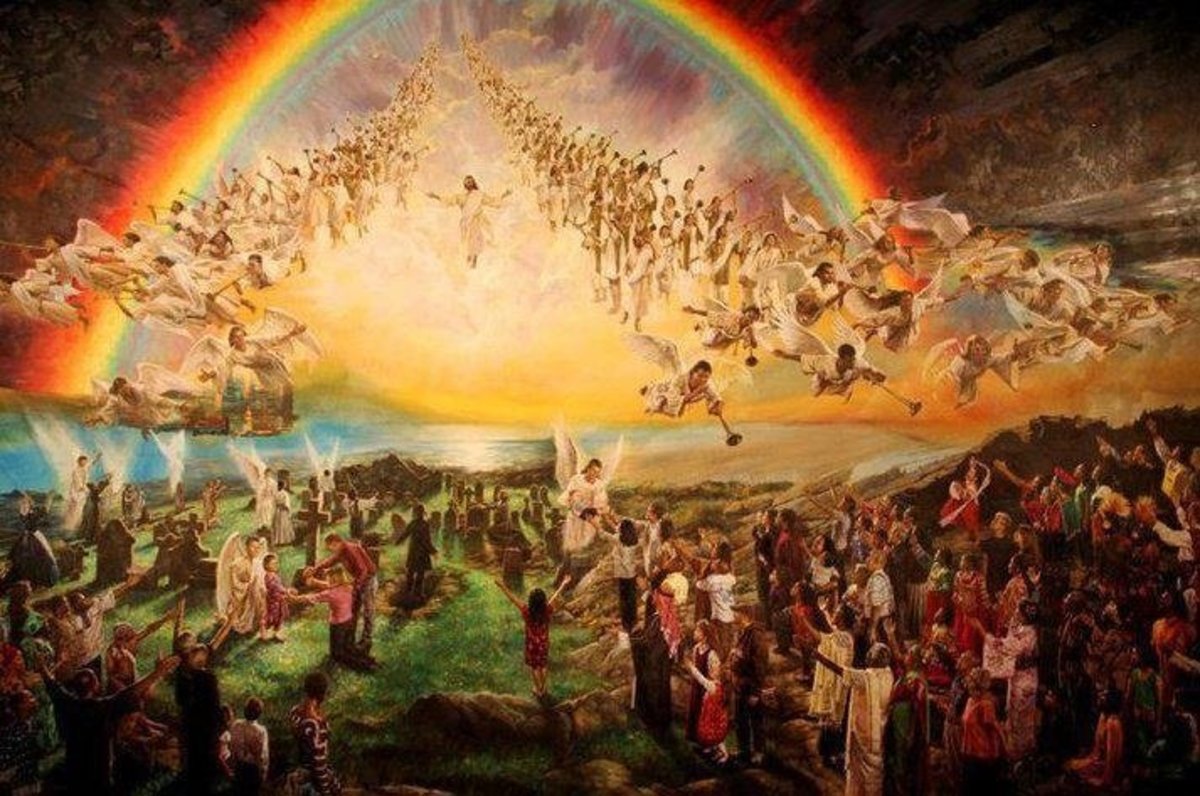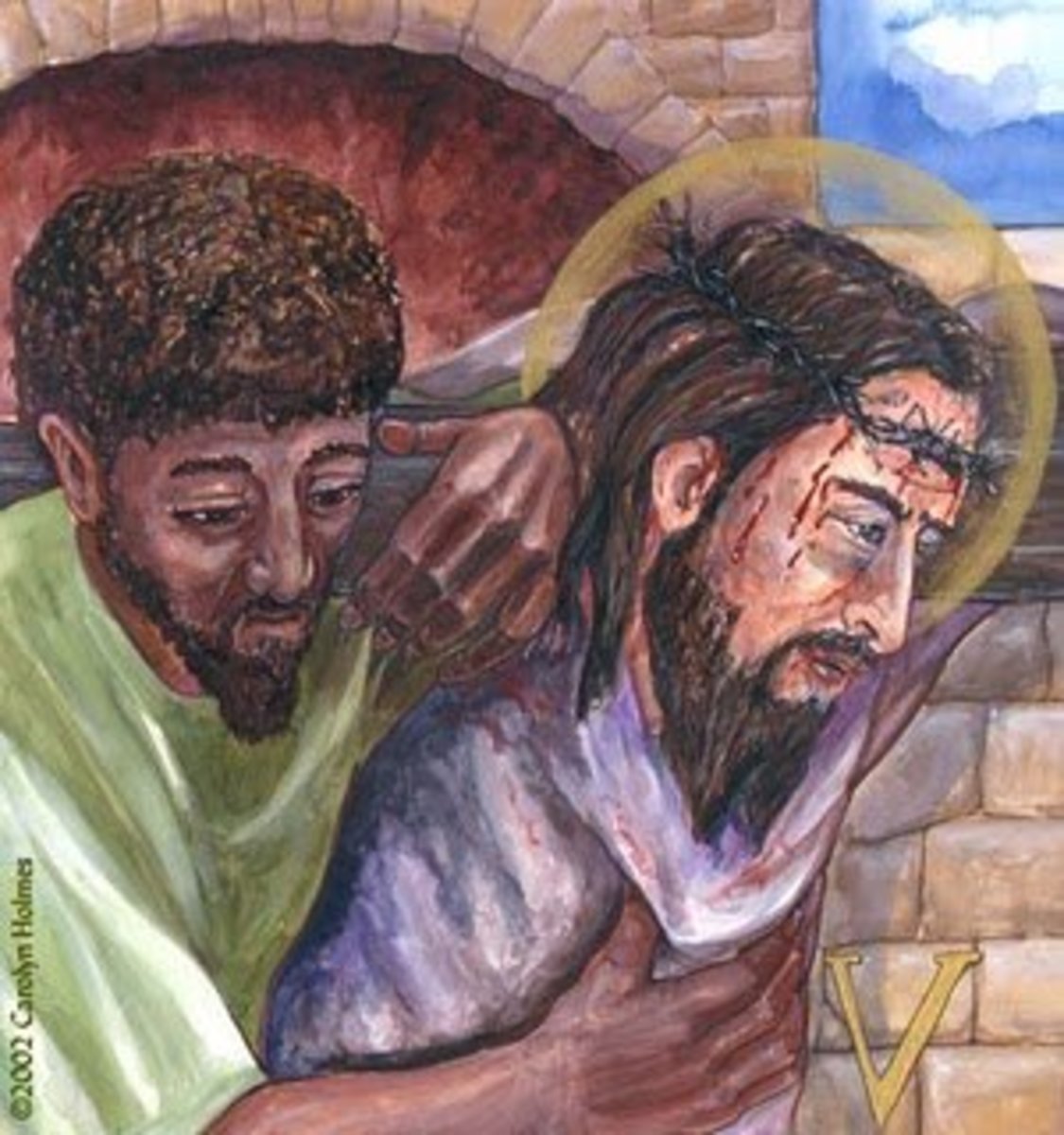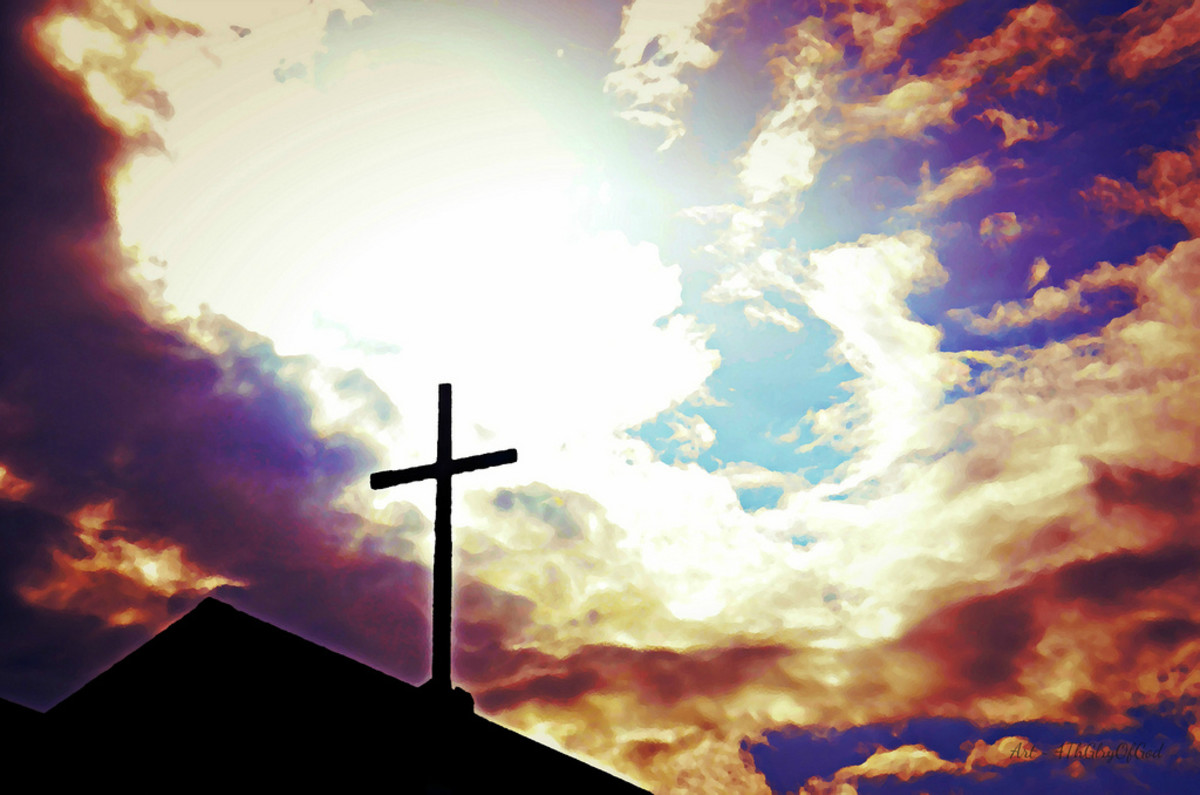The Raptured Chosen
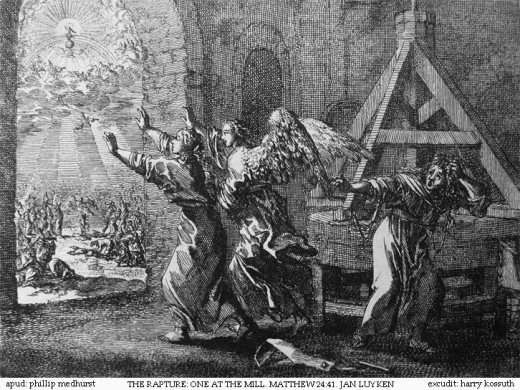
Introduction
As you are pulling up to a stoplight, you read the bumper sticker on the car in front of you “CAUTION!!! In case of Rapture, this vehicle will be unmanned”. As you drive off, you smile in the knowledge that your car will also be unmanned if the rapture were to happen in your lifetime. But how does one actually know if they will be a part of the chosen few if and when the rapture was to occur? And exactly what is the rapture? Does the bible speak of these events and explain what is expected to be included in those who are chosen? Even if this event is discussed in the bible, what was the message the author was attempting to impress to his audience and how did the early church interpret this message to apply for their time and is that message and interpretation still relevant to today’s church and its followers.
The vast majority of Christian believers today, with regards to the rapture, envision all of those who have been true and faithful to Christ will be whisked away with the second coming of Jesus Christ and those who remain will be doomed forever as part of the end of time and the world as we know it coming to an end. However, there is a debate on exactly what will happen during the rapture, and who it is that will be a part of the chosen. There are two different views, the first being that after the rapture there will be those who are left behind who will endure a period of tribulation. The second is simply the final resurrection of the chosen select. So we are still left with the question of what is the rapture and who is the chosen. In an attempt to answer these questions, let’s look to the bible and see what insight it may offer to these questions. We shall also look to the Church and some of the most respected theological voices of Christianity today to see what answers we might find for today’s Christians.
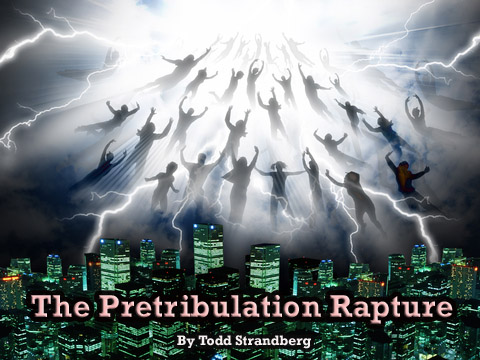
Rapture? Chosen?
The first thing we should determine in our search for an answer to the question of the raptured chosen is what exactly these terms mean. According to John T. Ford, the word “Rapture” comes from the Latin rapere, meaning to seize or to be caught up and refers to the belief, based on an interpretation of I Thessalonians 4:15-17, that at the Parousia, the Church will be caught up into union with Christ. And the “Chosen People” as referring to God’s decision in the Old Testament to choose Abraham and his descendants to be the recipients of divine Revelation and so to play a unique role in salvation history; thus, their descendants, the Jewish people, are God’s Chosen (Ford). This appears to be conflicting information within the definitions themselves as the rapture seems to include all who are followers of Christ, while the Chosen people are the Jewish people and Gentiles are not mentioned.
While the bible itself does not use the actual term “rapture” it is implied or referred to in various passage in both the Old and New Testament. In the Book of Genesis and again mentioned by the Apostle Paul in his letter to Hebrews, we read of Enoch living a number of years and not seeing death as he was “taken up” by God. In 2 Kings, we read of Elijah being “taken up” by a whirlwind to heaven. Here we have two examples of God’s Chosen being raptured. One of the things we notice in the description of both of these persons is that they were shown to be favorable in the sight of God. So what does it mean when one is described as being favorable in the sight of God? Matthew Henry speaks of Enoch’s favor and states in his commentary “Godliness is walking with God: which shows reconciliation to God, for two cannot walk together except they be agreed. It includes all the parts of a godly, righteous, and sober life. To walk with God, is to set God always before us, to act as always under his eye. It is constantly to care, in all things to please God, and in nothing to offend him. It is to be followers of him as dear children. The Holy Spirit, instead of saying, Enoch lived, says, Enoch walked with God. This was his constant care and work; while others lived to themselves and the world, he lived to God. It was the joy of his life. Enoch was removed to a better world. As he did not live like the rest of mankind, so he did not leave the world by death as they did. He was not found, because God had translated him. He had lived but 365 years, which, as men's ages were then, was but the midst of a man's days. God often takes those soonest whom he loves best; the time they lose on earth, is gained in heaven, to their unspeakable advantage” and of Elijah, “Let it suffice that we are told, what his Lord, when he came, found him doing. He was engaged in serious discourse, encouraging and directing Elisha about the kingdom of God among men. We mistake, if we think preparation for heaven is carried on only by contemplation and acts of devotion…By the manner in which Elijah and Enoch were taken from this world, God gave a glimpse of the eternal life brought to light by the gospel, of the glory reserved for the bodies of the saints, and of the opening of the kingdom of heaven to all believers. It was also a figure of Christ's ascension.” (Henry). It is in these passages and commentary we see that God’s Chosen who are being recorded as being “raptured” walked with God in every aspect of their lives, every part of who they were and how they live was enveloped in God and doing his work.
The Old Testament makes it quite clear that the Jewish people are indeed God’s Chosen people and the examples of Enoch and Elijah show that God does indeed rapture his favored elect before death for them to walk next to him in a much more personal way. But what does that mean for the Gentiles who are graphed into the linage of Abraham through Jesus Christ? For the answer to this question we must look to the New Testament and the words written there by those who were privileged to dwell in a period of time when God himself walked among men in human form, better known as Jesus the Christ.
Once again we note that the actual word rapture is not used, but is insinuated to in a few different places through the New Testament. The Koine Greek of 1 Thessalonians 4:17 uses the verb form harpagisometha, which means "we shall be caught up" or "taken away", with the connotation that this is a sudden event. The dictionary form of this Greek verb is harpazō. This use is also seen in such texts as Acts 8:39, 2Corinthians 12:2-4 and Revelation 12:5. So we see a major difference between the Old Testament and New Testament in use of terms relating to rapture. One other thing of note is that, with the exception of the ascension of Jesus, there are no stories or reports of anyone being raptured. That is of course somewhat questionable though, because it is mentioned that the dead was risen when Jesus arose from the dead and that many were witnessed to this, however there is no mention on if they remained on earth or went to heaven with Jesus as well.
Paul speaks of the chosen being “taken up” in his letter to the Thessalonian Church. And in the book of Matthew, as well as Paul’s letter to the Church at Corinth, we see mention of a rapture event as well and the Chosen also known as the “elect” are taken up to heaven at the return of Jesus Christ. But once again we are not given definitive thought as to who this might be. Paul’s message was directed to the Gentiles, while Jesus’ message was originally meant for the Jews. And in both, we see descriptions of what is expected of those who will be a part of the chosen. Jesus speaks of fulfilling the law and to uphold the law which would imply the Old Testament laws are to be followed for one who wished to be a part of the chosen. But as previously mention, his message was meant for the Jewish people and the laws were set down by God for the Jewish people to follow as part of their covenant with God. Paul, however, states that as for the Gentiles, with the death and resurrection of the Christ, the old laws no longer apply to them and they are forgiven and live under grace instead of the law. In his letters, he does lay out certain aspects that must be followed to ensure one can be counted as one of the chosen and these are patterned on the laws of the Old Testament. In reading the New Testament we can gather a fairly solid idea of what was expected of the Christians in the early emergence of Christianity concerning the term Rapture and what it meant to be Chosen. But how do we see this today?
In today’s churches there is no “set in stone” agreement on the rapture or who is included as part of the chosen, other than the fact that, there will be a rapture and the chosen will be taken up. Most Christians believe that, only those who believe in Jesus Christ as the savior will be included in those that are chosen. They leave little room for there to be an exception to this, but are they correct biblically speaking? Also for many of Christians today, there is little doubt that the end of times are fast approaching, when looking at the “state” of the world today. And with the end of times the rapture could occur at any time. So with these things being said, and questions still in a very gray area, let’s take a more in depth look into what the bible tells us about the Raptured Chosen.
The Revelation of John
In this next section we are going to look at John of Patmos and his Revelation of Jesus as found in the Book of Revelations, namely sections of Chapter Seven. But before we delve into these passages and how they relate to the Raptured Chosen, we must first learn of the author, the time period and culture in which he lived and who his message was directed at and how that may give us a better understanding of the message contained in the passages of interest.
Other than the author naming himself and stating his location, little is known as to who he truly was. It had been thought he was the same John who wrote the Gospel as well as the I,II,III John contained in other parts of the New Testament, but the writing styles are different.
As for when written, scholars have placed the writing of the Book of Revelations around the year 95 C.E. and its audience to be the seven churches of Asia Minor (Harris). An interesting note to make here is these seven churches are very much quite possible to be the same churches that the Apostle Paul himself started.
One of the biggest problems with understanding this book of the bible is it uses of a lot of symbolic message and meanings behind the majority of the writing, which is common practice when dealing with apocalyptic types of writings. However, this process might be made slightly easier with cross-referencing with other parts of the New Testament as portions are easier explained with passages from Paul’s letters and the Gospels. One thing to remember, although the Book of Revelation is the only apocalyptic message in the New Testament, there were multiple texts written of this type in and around this timeframe of the Church. Now that we have covered the basic history of the passage we are to cover it is time to look into the passage and see what answers we can find concerning the Raptured Chosen.
In the first three verses of Revelation chapter seven, we find the setting for the first events following the rapture and those who are present. These first verses allude to what is the ending of the “tribulation period”. What is this tribulation period? If we look to other parts of the New Testament, we find passages that speak briefly to this time of tribulation. In the book of Matthew, Jesus speaks of there being a tribulation during the end of times “For then there will be a great tribulation, such as has not occurred since the beginning of the world until now, nor ever will.”… “But immediately after the tribulation of those days THE SUN WILL BE DARKENED, AND THE MOON WILL NOT GIVE ITS LIGHT, AND THE STARS WILL FALL from the sky, and the powers of the heavens will be shaken” (New American Standard Bible). From these verses et al, we know that at the end of times there will be a period of tribulation. What will actually happen during this period of tribulation is not completely clear as most of what is written about this timeframe is written in apocalyptic format. The big question though, is will the Chosen be a part of this tribulation or will they be raptured prior to this event? Once again we look to other parts of the New Testament to find this answer. The Apostle Paul states in 1 Corinthians and again in 1 Thessalonians “in a moment, in the twinkling of an eye, at the last trumpet; for the trumpet will sound, and the dead will be raised imperishable, and we will be changed”…”For the Lord Himself will descend from heaven with a shout, with the voice of the archangel and with the trumpet of God, and the dead in Christ will rise first. Then we who are alive and remain will be caught up together with them in the clouds to meet the Lord in the air, and so we shall always be with the Lord”. Paul is not clear on when this event will occur, either prior to or after the tribulation. Jesus speaks of this event as recorded in Matthew “And then the sign of the Son of Man will appear in the sky, and then all the tribes of the earth will mourn, and they will see the SON OF MAN COMING ON THE CLOUDS OF THE SKY with power and great glory. “And He will send forth His angels with A GREAT TRUMPET and THEY WILL GATHER TOGETHER His elect from the four winds, from one end of the sky to the other” which is to happen after the tribulation period (New American Standard Bible).
We have two possible scenarios according to scriptures, either the rapture will happen before or after the tribulation. Since the Jewish people are agreed by most all scholars and the Bible to be God’s Chosen People, what are their views on the Rapture? With the exception of “Messianic Jews”, Jews do not believe in any type of rapture prior to the tribulation. This should not be surprising as the Old Testament or Tanakh does not speak of any rapture taking place. Jewish people believe however, of the High Holy Days being a guide to the end of days. Each one holds a meaning to an event that has taken place or will soon take place in accordance with scripture as to the end of times. Dr. T. Peterson notes in an article “Is the rapture a Jewish event” that “Each festival or feast has not only a former significance, like Passover and the Exodus from Egypt, but a Messianic significance, like as in the Passover Lamb that the Lord himself represents in the First Century CE (at the Passover feast). Pentecost is the time when the Jewish people received the Law at Mount Sinai. But that same date many hundreds of years later is the time when the Ruach Ha Kodesh (Holy Spirit) descended on the Jewish talmidim (the disciples to Yeshua). The Law was being replaced by the Spirit, itself a significant Messianic event for believers until the return of Messiah himself”…” In the cycle of High Holy Days there are as yet ‘unfulfilled” days in terms of the Messianic parallel. In this regard it’s Rosh Hashanah that comes next. And to the Gentile mind this is simply a Jewish New Year. But remember, this day is also the Feast of Trumpets. During the festivities on that occasion, several trumpets – really rams horns, the schofar – are given a great blast. During a formal Rosh Hashanah service these schofar blasts lead to a LAST TRUMPET in a series of trumpet calls. That not only happens to be a last trumpet, it also happens every year. This is literally a ‘last trumpet’ that can come before the first! While we cannot be certain when, it is entirely possible that at some time in the future, the last trumpet to signify the rapture will come at Rosh Hashanah. Gentiles and unbelieving Jews might miss this point! We are leaving the possibility open!” (Peterson).
Jewish teachings are that there is not to be a rapture prior to the tribulation, so where and why did this doctrine come about? Early Christians did not believe this either as can be seen in some of their writings “Then shall the race of men come into the fire of proving trial and many be made to stumble and fall. But those who remain established in their faith shall be saved under the very curse” (Didache; 16:5). “Happy ye who endure the great tribulation that is coming on … “ (Hermas; Chapter II, Vision II). The Rapture is a doctrine that came about in the 16th to 17th century becoming mainstream in the mid 1800’s. If we look to early Jewish traditions such as the wedding ritual of the early Jewish people, which is what we can attribute the return of Christ to, there are a few steps in this process: Courting the Bride or the Messiah comes to earth to seek out the Chosen. Fetching the Bride or the rapture in which the Bride (Church) is gathered by the Bridegroom (Christ) and brought to himself or his home (Heaven). The wedding which is attended only by those immediate to the event (such as the Chosen (Jews), prior to the tribulation) and finally, the wedding feast attended by a broader audience, with additional guests (to include those who make it to heaven after the tribulation or including the Gentiles). This scenario has some validity as the Gospels speak of Jesus coming to the lost sheep of Israel and he even speaks of this as a parable in the Book of Matthew.
Jewish mysticism plays a vital role in understanding parts of the Book of Revelation. It is quite probable that John was a Jewish mystic, if judging solely by his writings. To classify his style of writing would lead one to the Messianic Jewish belief system for understanding. There is a reason Jewish mysticism is brought up at this point, John speaks of 144,000 Jews, 12,000 of each of the twelve tribes of Israel, standing before God and to get an understanding of why this number of Jews were chosen by John as part of his writing requires a look into the Jewish Kaballah for the significance of the number Twelve. In the Kaballah, the number twelve represents hope for the future and the challenge to continue the good work of making the world into a messianic masterpiece, which is in keeping with the Jewish thought of returning the earth to a place that is filled with peace and perfection, a replica of the Garden of Eden, for the return of the Messiah. The number 144,000 has meaning as well as the 144 is the number 72 doubled. The number 72 is attributed by the Jews as one of the names of God and is “confirmed” in use by looking to the Book of Exodus Chapter 14 verses 19-21 where each verse contains 72 letters and the first word of each verse translates to “come, go and extend”. Which is indicative of the Jewish adage of “We travel down the road, we “come” and “go” on our life path. But if we are going to improve our world, to make it Messiah friendly, we are going to have to continue to “extend” ourselves” (rebahir). This is a very interesting concept, as in the Jewish view of things, there is no rapture to take place but rather a “cleansing” of the earth back to the perfection that was the Garden of Eden for the return of the Messiah and for God’s Chosen to live in peace for the remainder of all time. This is a concept that is even supported somewhat in John’s Revelation with the 144,000. Of course, this number is not to be taken as an accurate number of the Chosen, but rather symbolic in nature as to the meaning behind the numbers themselves. By using the number twelve and its multiples, John is placing the Jewish people in line with Jewish teachings of the day as a people who are hoping towards the future of a return of the Messiah and to remind them to constantly push forward in the quest to “cleanse” the world for his return.
As we read further into the passage of Revelations, we see reference to a “great multitude in white”. This multitude is made up of people of all nations and languages and refers to those who have passed through the tribulation and made to be a part of the chosen by being “washed in the blood”. This reference, coming from a Jewish writer, points directly to those outside of the Jewish race, the Gentiles of the world. It is this passage that brings about the most questions as to who, of the Gentiles, will be part of the Chosen. It is quite clear from this and other passages found in the Gospels and Paul’s writings that there will be those who will make it into heaven, but only after enduring the period of tribulation and staying true to God. As previously mentioned, there is no clear mention of anyone, Jew or Gentile, being taken up in a rapture prior to the tribulation period. And it is this passage that seems to be overlooked quite often by Christians in the modern times, as to when the rapture will occur. So why do so many today, still think or believe that there will be a rapture of God’s Chosen prior to the tribulation period as described elsewhere in the Book of Revelation? The most likely cause is a misinterpretation of passages found in the Gospels and Paul’s letters. These passages have been quoted previously and so will not be mentioned in depth here, but it is clear that some have chosen to focus on these passages without delving further into the Jewish Christian history of the timeframe in which these documents were written. Nor have they followed up in cross-referencing these passages with the Book of Revelation and the divine vision given to John concerning the end of times. To what end this omission accomplishes one might never truly know for sure, as it has been included into modern Christian Doctrine for the last few centuries. It is however, safe to say, that as with many other Christian doctrine, this doctrine was included to meet the needs of the church to combat the religious problems of the day. Regardless of which religious belief one follows, the thought of a mere human having to endure the type of tribulation as described in the Book of Revelations and other apocalyptic sources, was probably not something that proved to be a good “selling” point for the conversion of new believers to the Christian faith. If records are correct in that this doctrine of the raptured being taken prior to the tribulation came about in full stream in the 1600-1800 timeframe, it would stand to reason that in an age when people were becoming more educated in matters of the world as well as religious beliefs, that a new form of doctrine would be required to explain the end of times and how it would have an effect of Christians.
Today's Rapture and Theologian Thought
In the late 1700 to the early 1800’s, the Church (all churches) was losing or had loss the majority of the political control it once enjoyed. This was a problem for the Christian churches as they no longer held control over the “lay” people with regards to their “souls”. To counter this issue, there had to be a different way for the church to maintain its “control” over its congregation. John Nelson Darby of the Plymouth Brethren started preaching of the Rapture and promoted this Doctrine with the Scofield Reference Bible in the 1830’s. This new Doctrine gave the church a new outlook on the end of times. It offered that if one was to live a righteous life that said person would be a part of the rapture and would not be left here on earth to endure the pain and suffering of the tribulation. This Doctrine offered a much “prettier” ending for those who were true believers and followers of the faith. And this was a very attractive message in the church gaining new converts and retaining the current converts.
We have a fairly clear picture of what to expect at the end of times, and that there will be some type of a rapture, although not necessarily as we would define the word or event. It is also fairly clear that this event will happen after the period of tribulation. The one thing that isn’t completely clear is who will be a part of the Raptured Chosen. We can know from the Gospels, Paul’s letters and the Book of Revelations that the Jewish people will indeed be a part of this rapture. We also know that there will a multitude of non-Jewish people included as well. But as to who will be included in this multitude is still very highly debated.
In an attempt to determine who will be included as part of God’s Chosen in terms of the Gentiles we need to look into the Doctrines of Today’s Churches. The Mormon faith holds that God’s Chosen will endure great trials and calamities prior to the Saviors return to earth to dwell in righteousness with men on earth for one thousand years (Saints). They follow a more Jewish thought, in that the Messiah will return to earth after the tribulation. It is in the return of the Messiah that will bring about the end to the tribulation. Jesus will come in power and great glory and the wicked will be destroyed and the earth will be cleansed by fire. He will judge his people and he will usher in the millennium (Saints).
The Catholic belief adds a slight twist to things with its doctrine of Purgatory. This holds that only one that is completely sinless can be afforded entrance into heaven. This Doctrine offers that there is an in-between place where a person can “pay our debt” to God and then released for entrance into heaven. In this case, there is no real rapture of the Chosen, but rather upon death, if one is mostly “good” then purgatory can afford the soul the opportunity to complete its penance for entrance into heaven (Mattison III). They also believe that there will be a literal resurrection of the dead with the rapture.
The majority of Christians outside of Mormon or Catholic beliefs hold that there will be a rapture prior to the tribulation. They also feel that there will be a resurrection of the dead to be rejoined with God. And that this rapture will be the Chosen being whisked away up to Heaven while those who have not lived as they should have will be left behind to endure the one thousand years of trials and tribulations while the anti-christ walks the earth. But, interestingly enough, there is no redemption for those who are left behind, which is clearly not what is spoke of in the book of Revelation. And still we have no clear picture of who, outside of the Jews, will be included as part of God’s Chosen. So what does one, who lives, breathes and studies Theology have to say about the rapture? Surely if anyone would have the answer to who is to be included in the Raptured Chosen it would be the Theologian.
First let’s look at a few of theologians who do not believe in the rapture. Some of these include R.C. Sprouls with Ligonier Ministries, Hank Hanegraaff, the Bible Answer Man, and many outstanding Bible scholars. These men are theologically sound teachers and evangelists. They believe that there is no rapture and that there is also no Great Tribulation from what many presume Jesus taught in Matthew 24 or the Olivet Discourse. Several scholars, like those mentioned above, believe that the events in the Book of Revelation have already occurred or might have already occurred in A.D. 70 when Jerusalem and the Temple were destroyed by the Romans. The vast majority of Bible scholars, churches, theologians, evangelists, and Christians however, do believe in a coming rapture. Even though the word rapture does not appear in the Bible, they base their beliefs on a passage from 1 Thessalonians. In 1 Thessalonians 4:13-18 Paul writes, “Brothers and sisters, we do not want you to be uninformed about those who sleep in death, so that you do not grieve like the rest of mankind, who have no hope. For we believe that Jesus died and rose again, and so we believe that God will bring with Jesus those who have fallen asleep in him. According to the Lord’s word, we tell you that we who are still alive, who are left until the coming of the Lord, will certainly not precede those who have fallen asleep. For the Lord himself will come down from heaven, with a loud command, with the voice of the archangel and with the trumpet call of God, and the dead in Christ will rise first. After that, we who are still alive and are left will be caught up together with them in the clouds to meet the Lord in the air. And so we will be with the Lord forever. Therefore encourage one another with these words.” (Wellman). It would appear that the majority of Christians are taking the Doctrine of the Rapture (prior to the tribulation) from one single source within the bible. This teaching is from Paul and does not take into account the words of Jesus found in the Gospels, nor does it take in the vision of John found in the book of Revelations. So each denomination of Christian, the Jewish, and various other religious beliefs all hold different views on the Rapture and those who are the Chosen, however slight it may be. This shows that there is no set knowledge in if there will in fact be a rapture prior to the Tribulation, nor does it clarify who will be included as God’s Chosen. It is interesting to note, that all Christians follow the Bible and have access to the New Testament and what it says concerning who will be Chosen. It is also fairly clear on the rapture and when it will occur. So why do we have differing views? Well the differing views between Jew, Christian and other religious sects are fairly obvious, as they follow different texts concerning this information. But what is the reason for the differing view among Christian, who should all be following the same text?
One thing is very clear. As long as the bible, namely the New Testament, is required to be interpreted in an allegorical sense vice a literal sense to meet with today’s times, there will never be an agreed version of interpretation. One reason for this, is that it is very difficult to approach an interpretation without being effected by one’s own biases. The majority of Christians and even Christian scholars have a foundation in their own personal version of Doctrine based on the church they were brought up in. When one has this, they tend to look for information that is in support of beliefs that are already formed instead of looking at all the information at hand and gleaning from that the “truth” within the information.
In discussions with both believers and non-believers, one thing is clear to this author, it is the non-believer who seems to find what the “truth” is in any given passage. Why would one say this? They start with an open mind free of the typical believer bias. They are not looking to prove a preconceived belief and just take the information for what it has to say, allegorical or literal. The believer on the other hand, varies depending on which denomination they follow. With the believers holding different views, how is one to know which one is correct? Maybe it is, that they are all correct (at least in part), or maybe they are all wrong and their beliefs in the rapture happening prior to the tribulation is nothing more than wishful thinking. Maybe it is that the Christian does not wish to be included in the Tribulation as in their mind this is reserved for the wicked and they do not wish to be associated with this part of the end of times. The bible is fairly clear on the Rapture and who the Chosen are. There will be Jews included as part of the Rapture, although it will not be as “taking up” as many believe. There will also be Gentiles included.
If one reads Chapter Seven of Revelations very carefully and cross-references other parts of the New Testament, one should come to the conclusion that all people living at the end of times will endure a period of tribulation. They will be witness to Christ himself and will be afforded the opportunity to accept Christ as their savior. With this in mind, it stands to reason that every person on earth will have a final chance to make it to heaven during this tribulation period. This conclusion does not really benefit the church though, as why would someone wish to live by the church “rules”, when they could “live it up” and then just repent at the end of time. It does bring into question why up until more recent times there was no doctrine concerning the Rapture. Why do the Jews not hold to this belief, or the early Christian followers? This is actually fairly simply to answer; there is no mention of a rapture in the Old Testament, which is the text that the Jews and the Early Christians followed, as the New Testament hadn’t been set yet as scripture. Even in following the Old and New Testament the early Church didn’t hold to this belief either. So what was it that changed, that warranted this new doctrine to gain ground and to be incorporated into modern Christian doctrine? This is something we will probably never know for sure, we each may have or find our own versions of what we think may have led to this doctrine.
So who are the Raptured Chosen? Well that depends, will there actually be a “rapture” as most Christian currently think of this event? Clearly the Jews do not think or believe this is an event that will occur as most Christians think. The Christian can’t even agree on this event. So with this being said, there is still many questions left on if there will be in fact a rapture. If there is no rapture, in the sense that many Christians believe, then there will not be anyone included in the Rapture Chosen. However, if there is a rapture event of any sort, then biblically speaking the Jews will be included. And also included will be a variety of Gentiles, from all walks of life, from all belief systems, from every race. So while many Christians feel they hold the only ticket to what we will say is the Raptured Chosen, the truth of the matter is in fact, that no one faith holds the only ticket to this reputed event. The Book of Revelation is quite clear that both Jews and all manner of Gentiles will be taken up to heaven after the Tribulation to bask in worship of God.
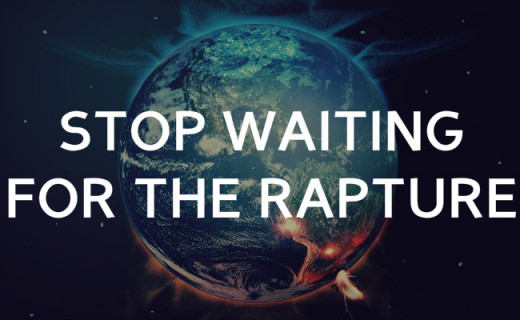
Cited Works
Ford, John T. Glossary of Theological Terms. Winona: Saint Mary's Press, 2006. Paperback.
Harris, Stephen L. The New Testament "A Student's Introduction". New York: The Mcgraw-Hill Companies, 2001,2006,2009,2012.
Henry, Matthew. " Matthew Henry's commentary on the whole bible." 2004-2011. biblos.com. 11 10 2013. <http://mhcw.biblecommenter.com/exodus/20.htm>.
Mattison III, William C. Introducing Moral Theology. Grand Rapids: Brazos Press, 2008. Paperback.
New American Standard Bible. The New American Standard Bible. La Habra: The Lockman Foundation, 2004-2011. 03 June 2011. <http://nasb.scripturetext.com/exodus/20.htm>.
Peterson, T. DR. "http://www.windowview.org/." 2009-2013. http://www.windowview.org/hmny/pgs/rapture.html. Web Document. 15 10 2013.
rebahir. http://rockymountainhai.com/2012/12/12/the-kabbalistic-meaning-of-121212/. n.d. 15 10 2013.
Saints, The Church of Jesus Christ of Latter-day. Gospel Principles. Salt Lake City: The Church of Jesus Christ of Latter-day Saints, 2009. Paperback.
Wellman, Jack. "http://www.whatchristianswanttoknow.com/what-is-the-rapture-a-look-at-the-different-views/." 11 12 2011. http://www.whatchristianswanttoknow.com/. WebPage. 15 10 2013.

